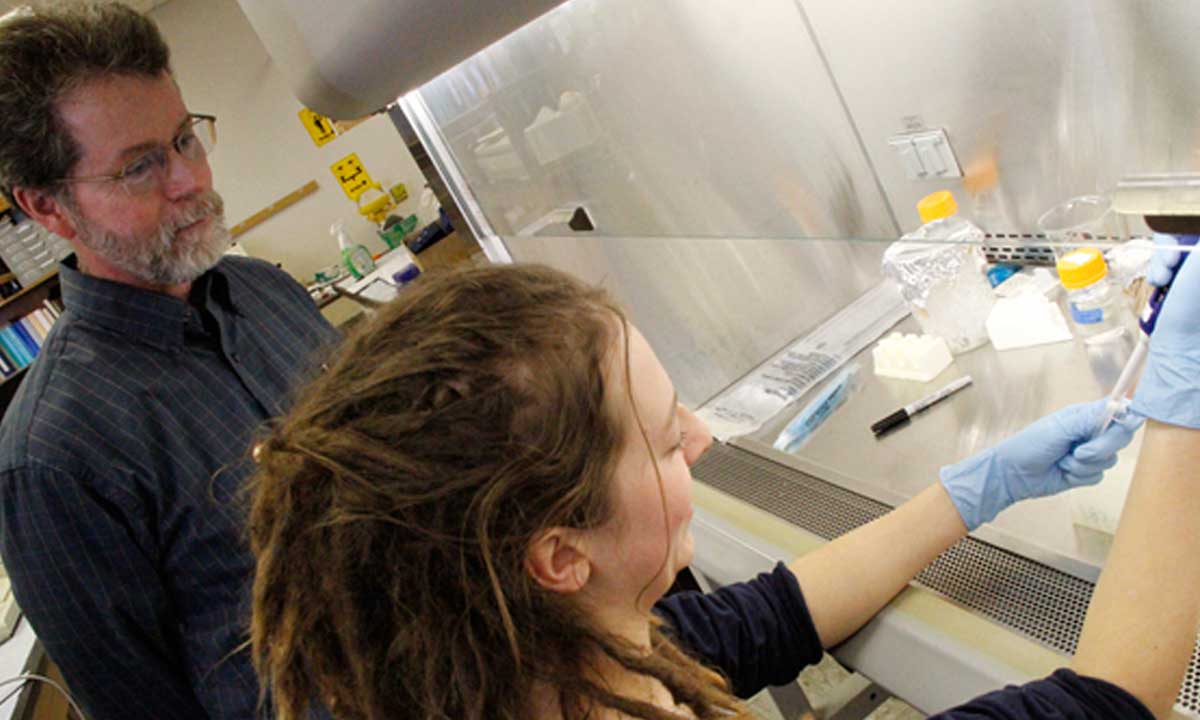A patented approach to skincare
New company gets start from JMU research
Research
SUMMARY: DermBiont, a new company with plans to develop a topical probiotic to treat athlete's foot and other skin infections has launched in Cambridge, Massachusetts
HARRISONBURG – DermBiont, a new company with plans to develop a topical probiotic to treat athlete's foot and other skin infections has launched in Cambridge, Massachusetts based on skin microbial research and a patent from James Madison University.
James Madison Innovations, JMU's intellectual property commercialization partner, licensed the patent to DermBiont, Inc. The patent was awarded in 2013 to JMU professors Reid Harris, biology, and Kevin Minbiole, chemistry (now at Villanova University). Mary Lou Bourne, Executive Director of JMI, said "We are very pleased to announce DermBiont as JMU’s first affiliated life science startup company. While the patent is integral to DermBiont, building trusted relationships between the inventors and the company’s founders was key to moving this opportunity forward. This milestone demonstrates that JMU’s research can clearly have real-world impacts."
DermBiont plans to develop an industry-leading skin microbiome therapeutics platform to prevent, treat and/or completely cure targeted disorders. The company plans to use the research and intellectual property licensed from JMU to create skin probiotics that treat fungal infections by improving a patient’s microbiome rather than conventional anti-fungal drugs. The skin microbiome is a diverse community of microorganisms that live in and on human skin, and a microbial imbalance on the skin is known as dysbiosis; there is substantial and growing evidence that dysbiosis may be the cause of a number of wide ranging skin diseases. Harris and Minbiole came up with the idea to target fungal pathogens with bacteria while collaborating on research into using naturally occurring bacteria to halt a deadly fungal skin disease plaguing amphibians around the world.
"Probiotics use beneficial organisms to help us in some way," Harris said. "We usually think of probiotics in terms of yogurt, which supply beneficial bacteria to our digestive tract, which can help defend against pathogenic bacteria. And so we thought maybe this same concept could be applied to the skin to either treat or prevent something like athlete's foot fungus as well as other types of fungal skin diseases."
Harris, who retired from JMU in September after 30 years at the university and transitioned to emeritus status, has mentored and collaborated with dozens of undergraduates, post-baccalaureate students, master's degree students, post-doctoral associates and technicians throughout his years as a professor and researcher.
